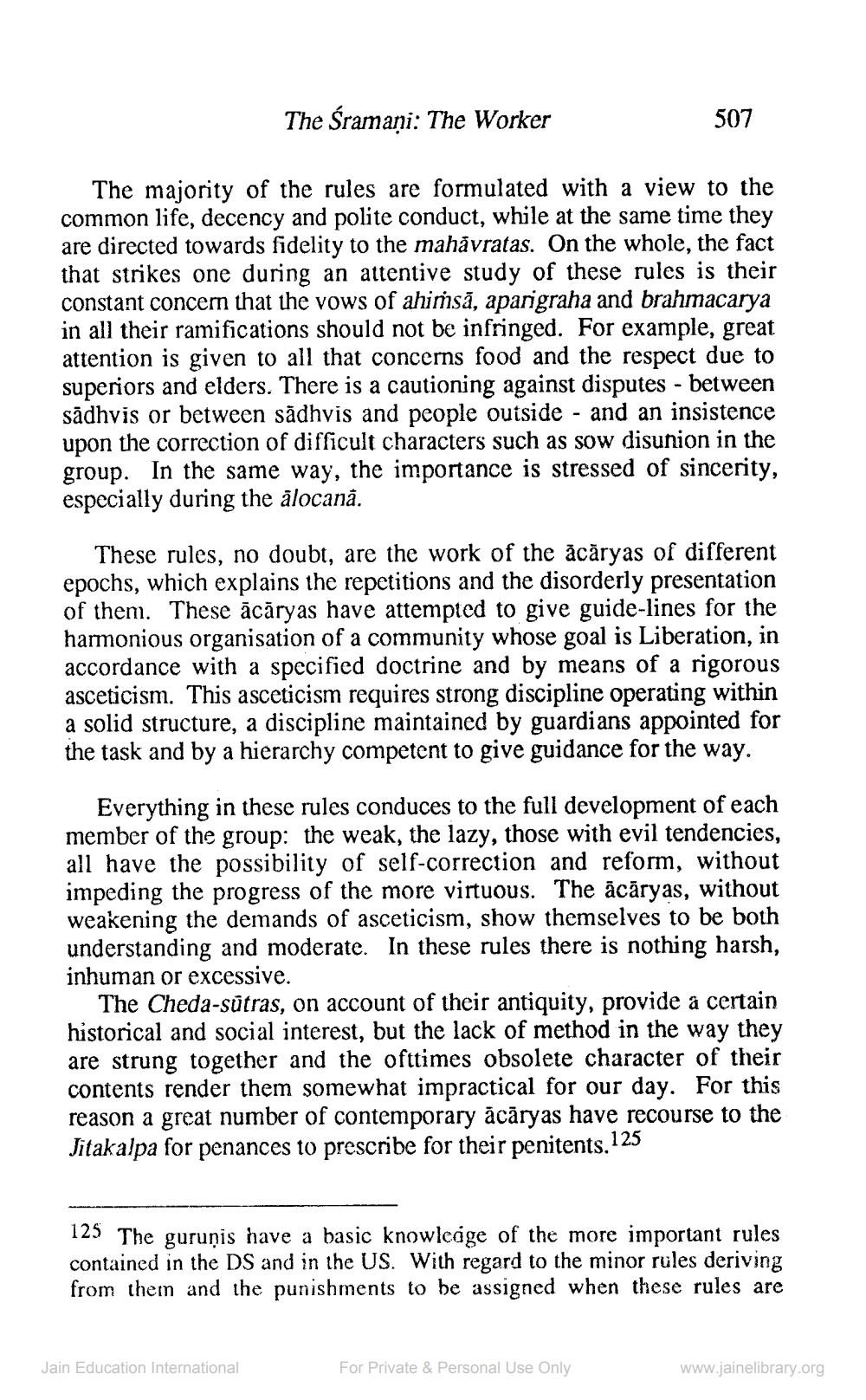________________
The Śramaņi: The Worker
507
The majority of the rules are formulated with a view to the common life, decency and polite conduct, while at the same time they are directed towards fidelity to the mahāvratas. On the whole, the fact that strikes one during an attentive study of these rules is their constant concern that the vows of ahimsă, aparigraha and brahmacarya in all their ramifications should not be infringed. For example, great attention is given to all that concerns food and the respect due to superiors and elders. There is a cautioning against disputes - between sādhvis or between sādhvis and people outside - and an insistence upon the correction of difficult characters such as sow disunion in the group. In the same way, the importance is stressed of sincerity, especially during the ālocana.
These rules, no doubt, are the work of the ācāryas of different epochs, which explains the repetitions and the disorderly presentation of them. These ācāryas have attempted to give guide-lines for the harmonious organisation of a community whose goal is Liberation, in accordance with a specified doctrine and by means of a rigorous asceticism. This asceticism requires strong discipline operating within a solid structure, a discipline maintained by guardians appointed for the task and by a hierarchy competent to give guidance for the way.
Everything in these rules conduces to the full development of each member of the group: the weak, the lazy, those with evil tendencies, all have the possibility of self-correction and reform, without impeding the progress of the more virtuous. The ācāryas, without weakening the demands of asceticism, show themselves to be both understanding and moderate. In these rules there is nothing harsh, inhuman or excessive.
The Cheda-sútras, on account of their antiquity, provide a certain historical and social interest, but the lack of method in the way they are strung together and the ofttimes obsolete character of their contents render them somewhat impractical for our day. For this reason a great number of contemporary ācāryas have recourse to the Jitakalpa for penances to prescribe for their penitents. 125
125 The guruņis have a basic knowledge of the more important rules contained in the DS and in the US. With regard to the minor rules deriving from them and the punishments to be assigned when these rules are
Jain Education International
For Private & Personal Use Only
www.jainelibrary.org




